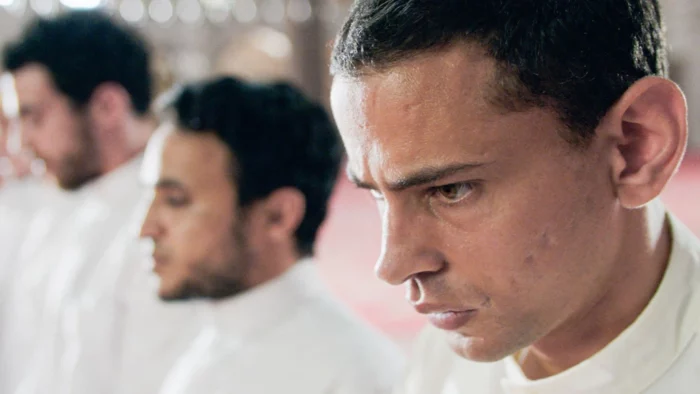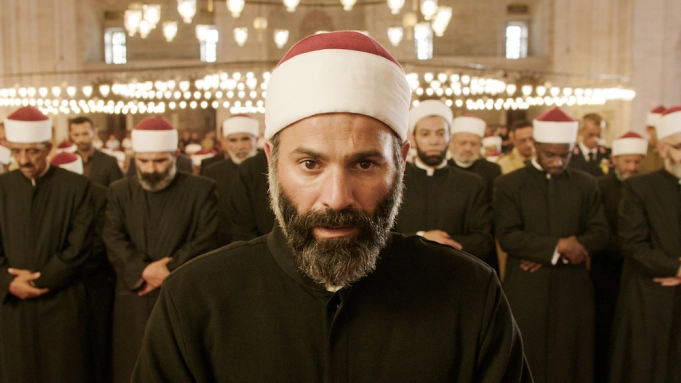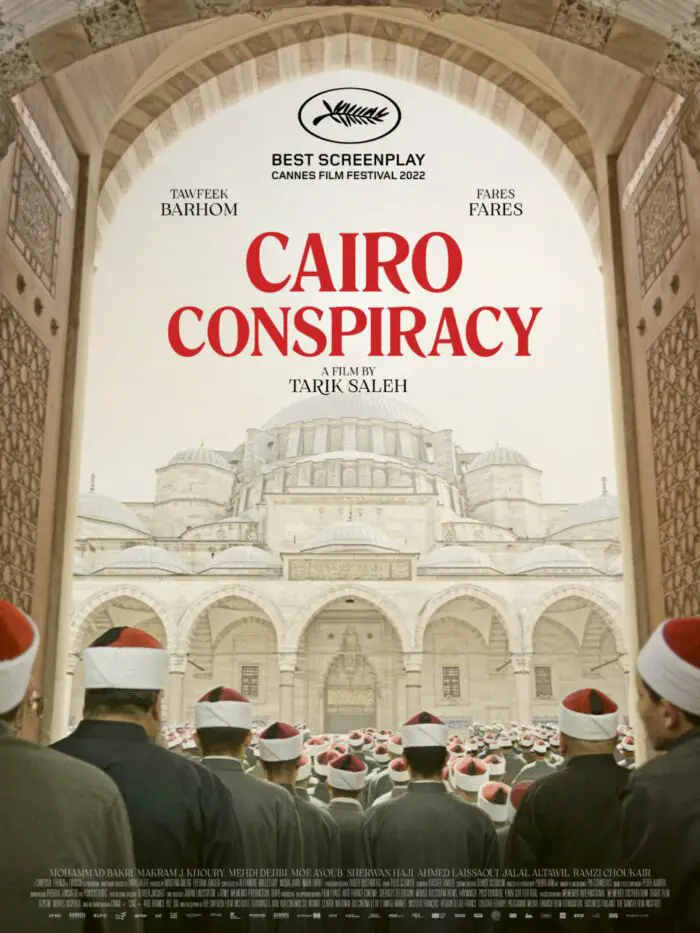Its modest thrills notwithstanding, writer-director Tarek Saleh’s Cairo Conspiracy engages the intellect if not the heart in its politics-and-power struggle set in the epicenter of Sunni Islam. Also known as Boy from Heaven, the title under which it won Best Screenplay at Cannes last year, Cairo Conspiracy takes on a contentious topic in the shadowy corridors of power where a private board of elders at al-Azhar University elects a new Grand Imam, the highest authority in the Sunni sect.
If power corrupts, the selection of a Grand Imam to lead the sect is one that is fraught with tension. Competing factions each have their own agendas, and the stakes are high enough to ensure corruption, even murder, to have their way. That’s the hardline of Sheikh Durani (Ramzi Choukair), whose front-facing conservatism is occluding his mentorship of terrorists-in-waiting—as well as his less-than-immaculate moral character. Another candidate is an ageing blind Sheikh (Makram Khoury), backed by deep-state ideologues but whose own agenda is unclear.

Between the two is Cairo Conspiracy‘s protagonist, a young, naïve, idealistic student named Adam (Tawfeek Barhom), son of a fisherman and new to the university where the power brokers pull their marionette strings. Adam’s lack of guile makes him an easy mark for mole-master intelligence agent Colonel Ibrahim (Fares Fares), who manipulates him into ingratiating himself with Durani. Adam’s not especially adept at undercover work. His lies to his jihadist-in-training classmates are less than convincing, and he’s seemingly without any particular conviction other than a vague notion of justice. Adam’s presence largely complicates matters, especially when Ibrahim takes a liking to the young student.
For a thriller, most of Cairo Conspiracy‘s action takes place offscreen. There are no directly depicted murders or beatings, no chases or physical challenges. At several moments, Adam’s safety is jeopardized, but viewers expecting Bourne- or Bond-like sequences will find their expectations unfulfilled. Rather, Saleh cherishes the smaller, more pensive moments of prayer, doubt, confusion, and recognition in his characters and the settings they inhabit, focusing on the evolving relationship between Adam and his mentor/manipulator Ibrahim, especially as Adam comes to realize what happened to the last young man in his position could just as easily happen to him.
Meanwhile, much of the life at the university proceeds at its normal pace, with a reverent, studious depiction of the study of Islam and its devotions. In particular, a recitation competition between the students shows even the hardline jihadists-in-waiting as practitioners as devout as any of their fellow scholars. In a setting where all are ostensibly equally devoted to the religion, groups of individuals will seek to achieve their goals via different means.

Saleh knows this territory well. He’s Stockholm-born, to an Egyptian father, and while his 2017 crime film The Nile Hilton Incident—the story of a murdered artist and the corruption of the Egyptian police —won the Grand Jury Prize at Sundance, it was banned in Egypt, where it made him an exile. Saleh has not backed down from making films exposing corruption there, even if he has taken to Turkey and Sweden to make them, as is the case in Cairo Conspiracy.
While Saleh came to filmmaking first as a graffiti and multimedia performance artist, the style of Cairo Conspiracy is subtle. He and cinematographer Pierre Aïm, his collaborator on Nile Hilton Incident and The Contractor both, aim here for a naturalistic, wide-angle, close-up, hand-held perspective hewing closely to Adam’s perspective. Like in the similarly-structured and also-just released Kompromat, here’s little manufactured drama or conflict in the narrative: just an organically developing sequence of events that finds the protagonist in over his head while trying to maintain his own moral code and religious faith.
In that respect, Cairo Conspiracy highlights its greatest strength, the one for which it was honored at Cannes: its slow-burn screenplay. It is one that eschews explosions and effects for the simple human drama of a young man learning his religious elders are no exception from the power that corrupts, even at the very epicenter of his faith.

Sweden’s official submission to the 95th Academy Awards and winner of the Best Screenplay competition at Cannes, Cairo Conspiracy opens in theaters in New York City, Los Angeles, and San Francisco January 27th in Arabic with English subtitles.



